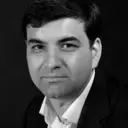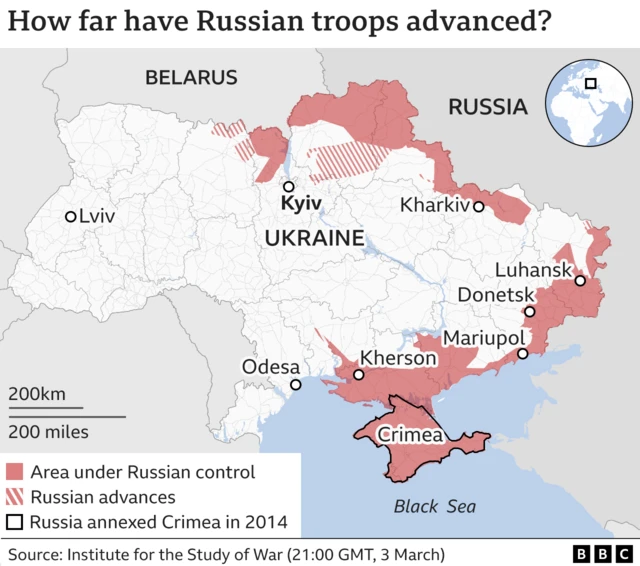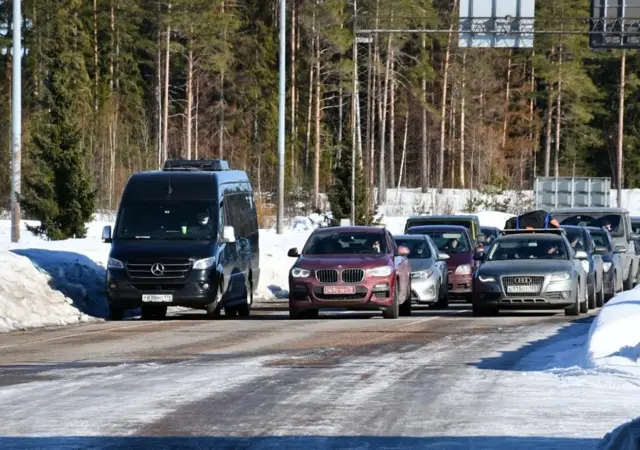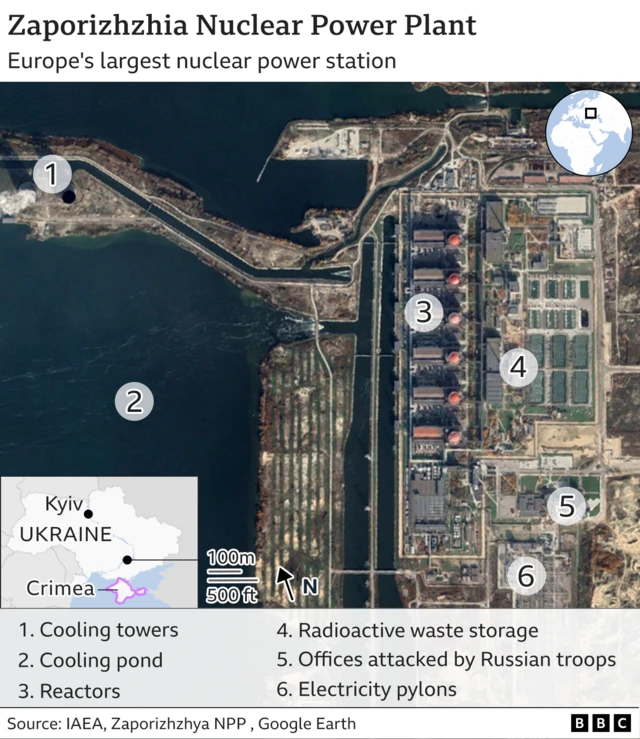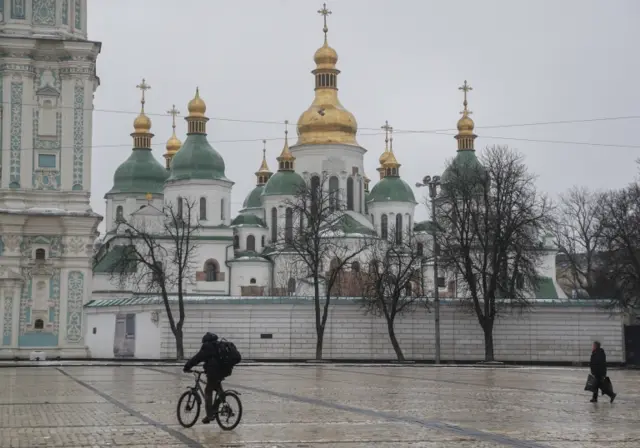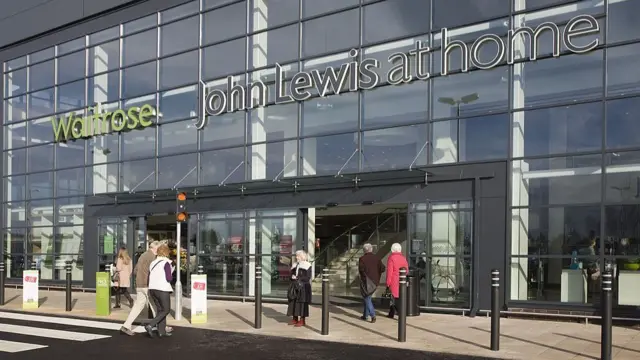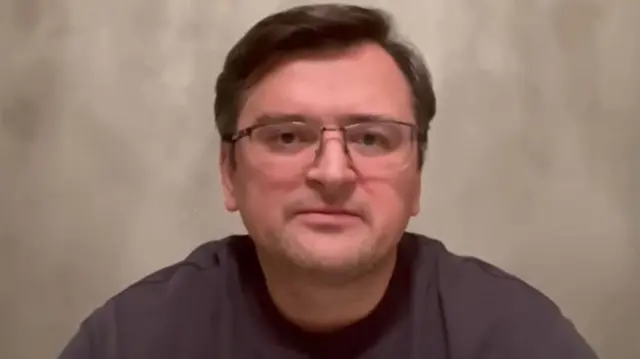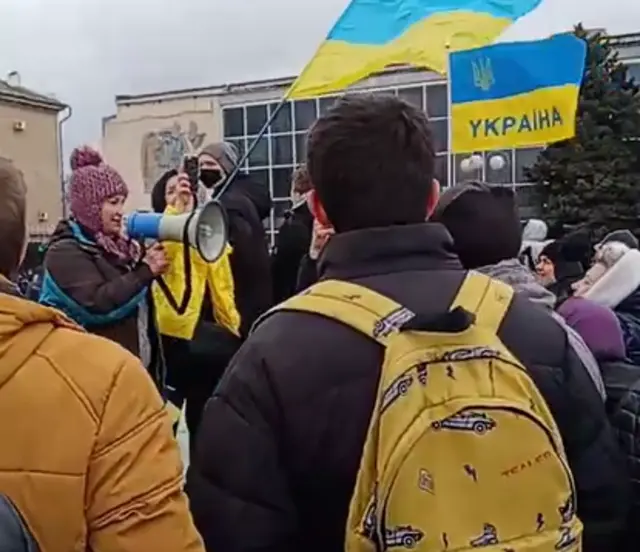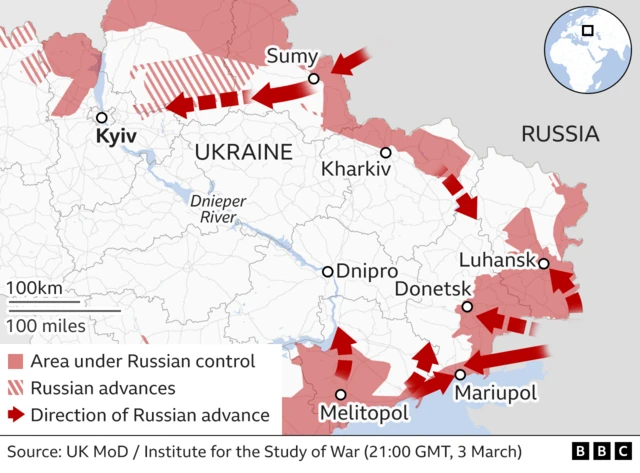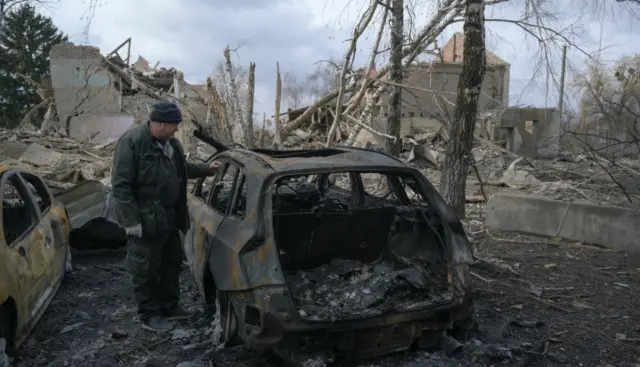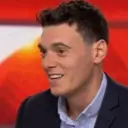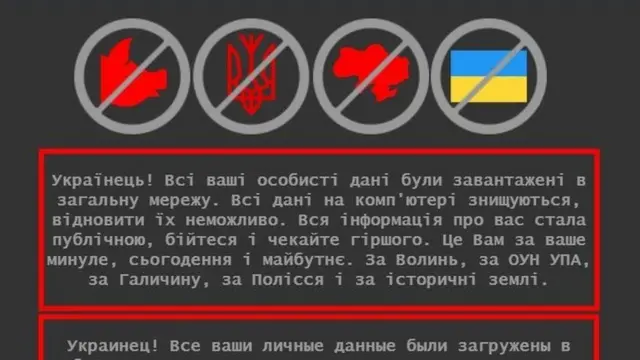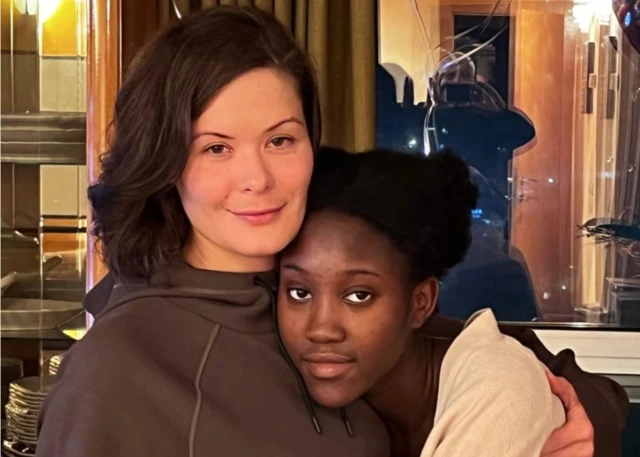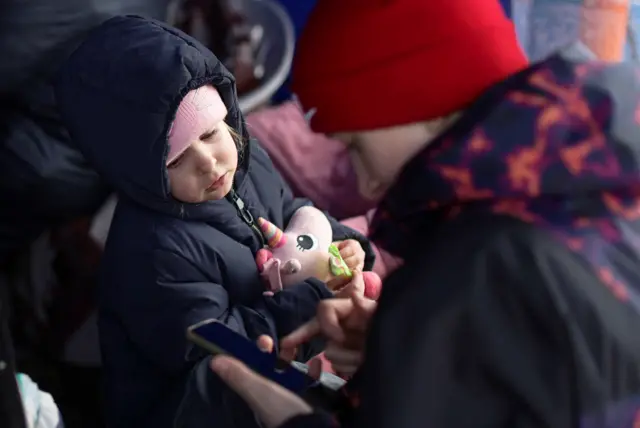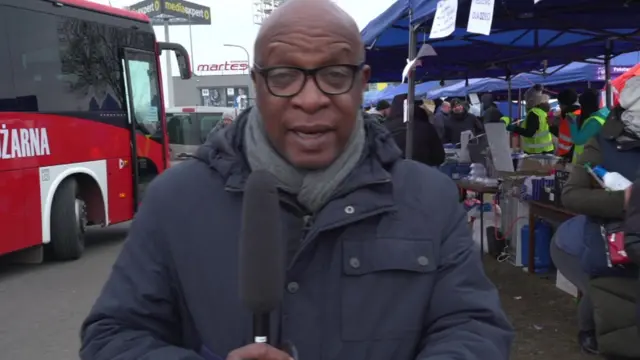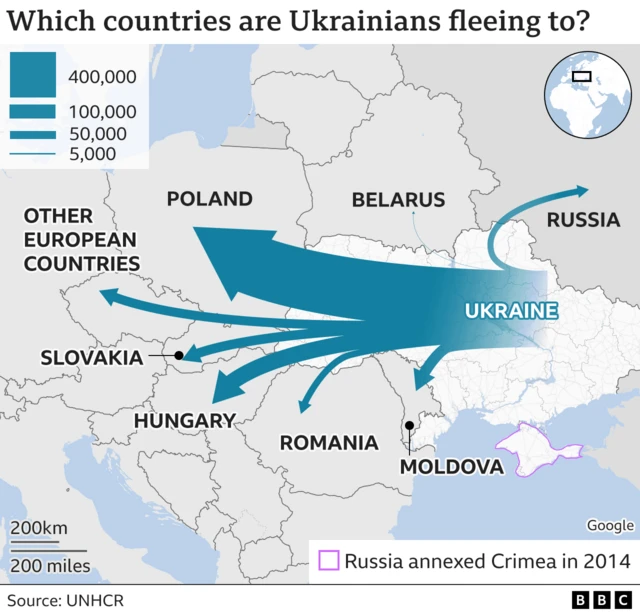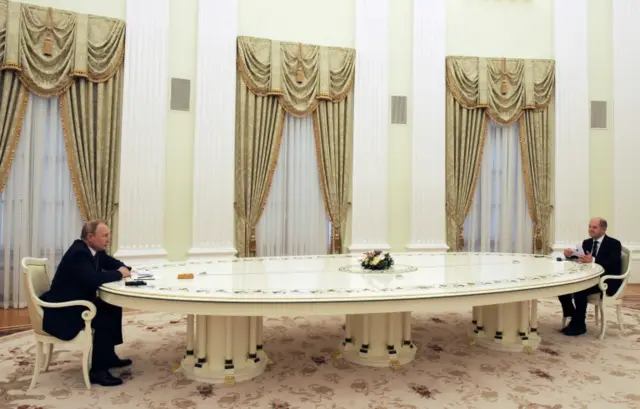
So far I've heard nothing about prisoners of war. Are both sides taking any?published at 16:50 GMT 4 March 2022
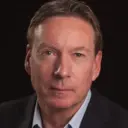 Frank Gardner
Frank Gardner
BBC Security Correspondent
Yes. There are reports of Russian conscripts who have been taken prisoner and been given mobile phones to call home.
Their families, we are told, thought they were just being sent to the Donbas region on a small operation, or even an exercise, but certainly not a full-scale invasion.
There are unconfirmed reports that Russia has drawn up a hitlist of two dozen senior Ukrainian figures that it is looking to kill or capture in order to decapitate the government and demoralise the resistance.

